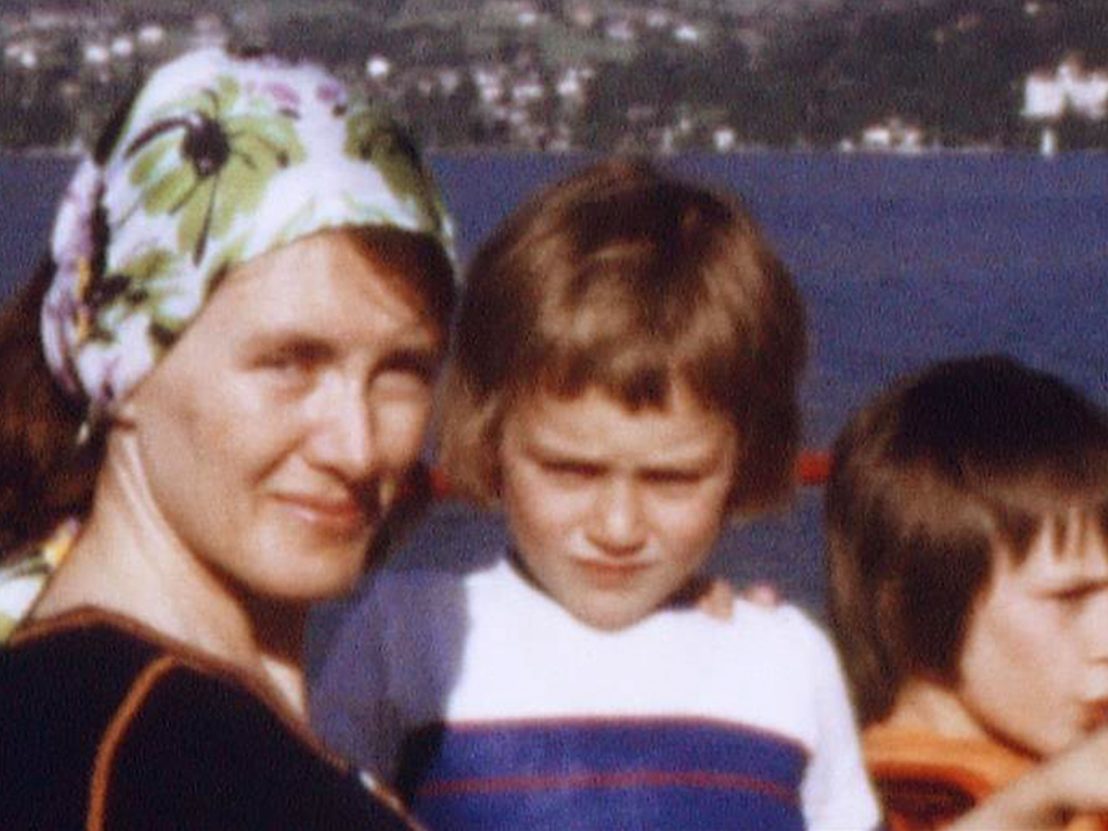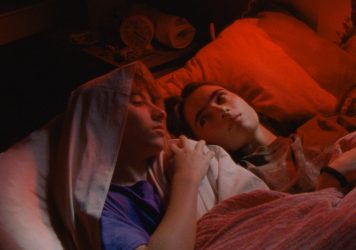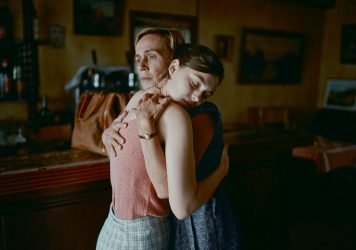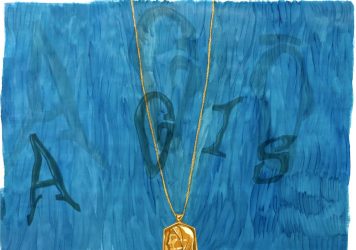
Annie Ernaux and her son David piece together a magical home movie essay on marriage, motherhood and the whole damn thing.
The French writer Annie Ernaux is having a moment: 2021’s Golden Lion winner Happening was adapted from her book recounting her illegal abortion in 1963. Many of Ernaux’s slender books, such as the gorgeous ‘A Woman’s Story’, about her mother’s life and death, take the form of quasi–third person memoir, mixing seemingly objective narration with oblique impressions never quite pinning down an elusive subjectivity still lingering somewhere in the past.
Her 2008 opus ‘The Years’ zooms out to the wider social history that shaped these experiences, blending intimate and particular sense memory into a clipped direct history of post-World War Two France. Given Ernaux’s interest in the art of remembering, it is no surprise that she is in the possession of home movies. Nor is it surprising that The Super 8 Years, an hourlong autobiographical essay film made from her own family archives with her son David Ernaux-Briot, is a gorgeous and intellectually expansive film, a worthy addition to the oeuvre of one of Europe’s greatest living authors.
Ernaux’s then-husband Philippe bought a Bell and Howell Super 8 camera in 1972, she says in voiceover, over establishing shots of Annecy, where Philippe and Annie lived at the time, along with their two sons, aged three and seven. Ernaux both wrote and reads the narration, and appears onscreen more often than her ex-husband – as she says, he most often filmed and she was most often on-camera, a familiar gendered director-muse relationship, which also situates her alongside his children and houses in a summary portrait of a man’s domestic accumulations.
Ernaux, who was born in 1940, is so young here, a #tbt photo of mom with long, straight black hair in a winter overcoat with wide faux-fur cuffs and collar. The saturated, blobby Super 8 colours make her seem at once vivid and remote, an outline. Her private life is behind the camera, in outlines which will be familiar to her readers: her origins in the rural underclass and upward social mobility, and the literary ambitions which she began to fulfil as she and her husband drifted apart.
The film spans the years 1972 to 1981, during which the camera most often came out on special occasions: holidays; vacations; and new houses. Ernaux tracks the march of history away from the left-wing breakthroughs that coincided with her intellectual and political awakening in the 1960s, taking note of French presidential elections alongside the songs on the radio and the books on her nightstand.
Ernaux is one of the great chroniclers of consumer society, and like The Years, whose title it echoes, The Super 8 Years is a general social history assembled from personal data. The barely-perceived political compromises and disappointments of these “newcomers to the bourgeoisie” colour the celebrations of leisure and domesticity, from the novelty of air travel (they always filmed the jet before they got on in those days) taking them on an exotic but dutiful expedition to Allende’s Chile; to the ski condo they bought in the mid-’70s and the proto-yuppie innocence of all that sporting knitwear; and, finally, at last, too late, to Moscow, where Annie and Philippe’s marriage ends along with the Soviet Union.
Time passes; Ernaux’s sons grow up from the kids in cowboy hats at Christmas ’72 to the flop-haired, bell-bottomed teens of the late ’70s. The young family scrambling over Roman ruins, she observes, is more remote to her now than the ancient history.
It’s Ernaux’s mastery of the memoirist’s art, the gathering up of scattered pearls of recollection in the sweep of history, that places The Super 8 years in the pantheon of narrow-gauge diary films. But whereas someone like Jonas Mekas used the texture of celluloid to evoke the flickers of memory and half-submerge the viewer in a lost moment, Ernaux uses her formidable knowledge of French society and her own heart to reframe these glimpses with a different kind of hindsight, one no less poignant. She more than earns the epithet she bestows upon herself and her mother in the film: “women on the frontlines of time.”
Little White Lies is committed to championing great movies and the talented people who make them.
Published 23 May 2022

By Steph Green
First-time director Charlotte Le Bon draws out sweet performances from her young co-stars in this idyllic coming-of-ager.

Audrey Diwan’s significant and unflinching adaptation of Annie Erneux’s memoir of a teen abortion is one of the year’s best films.

To celebrate the release of Happening, Picturehouse spotlight 10 creative responses from female artists, writers and creators.